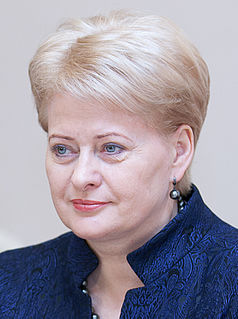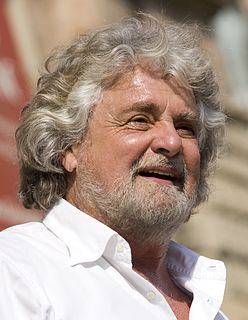A Quote by George Osborne
There was a real fear that a euro-zone bank might fail, that we'd have a sovereign debt problem in one of the larger European economies. That's dissipated, thanks largely to the action of the European Central Bank.
Related Quotes
Global central banks are working hard to lift their economies through an aggressively easy monetary policy. The ECB [European Central Bank] and BOJ [Bank of Japan] are buying tens of billions of bonds and other financial securities each month in an effort to stimulate their economies, which is pushing down rates everywhere, including in the U.S.
Look at Ukraine. Its currency, the hernia, is plunging. The euro is really in a problem. Greece is problematic as to whether it can pay the IMF, which is threatening not to be part of the troika with the European Central Bank and the European Union making more loans to enable Greece to pay the bondholders and the banks. Britain is having a referendum as to whether to withdraw from the European Union, and it looks more and more like it may do so. So the world's politics are in turmoil.
For a small open economy that trades mostly with the euro zone it makes absolute sense to be part of the currency union. Our currency has already pegged to the euro since 2002. We don't have an independent monetary policy. We are regulated by the European Central Bank in Frankfurt, but we are not able to reap all the profits. Our businesses want to save the transaction costs.
Part of the concept of the euro zone was to establish a common market. The banks were going to bank across all their countries like we bank across states. But that concept got killed for a whole bunch of reasons that I won't get into. That was a good concept, by the way. It may yet return, because there are huge economies of scale in banking. That's another thing people don't quite get.
This is the joint responsibility of everyone who was involved in the introduction of the euro without understanding the consequences. When the euro was introduced, the regulators allowed banks to buy unlimited amounts of government bonds without setting aside any equity capital. And the European Central Bank discounted all government bonds on equal terms. So commercial banks found it advantageous to accumulate the bonds of the weaker countries to earn a few extra basis points.
The lesson for Asia is; if you have a central bank, have a floating exchange rate; if you want to have a fixed exchange rate, abolish your central bank and adopt a currency board instead. Either extreme; a fixed exchange rate through a currency board, but no central bank, or a central bank plus truly floating exchange rates; either of those is a tenable arrangement. But a pegged exchange rate with a central bank is a recipe for trouble.
The first task of the Federal Reserve system would be to finance the World War. The European nations were already bankrupt, because they had maintained large standing armies for almost fifty years, a situation created by their own central banks, and therefore they could not finance a war. A central bank always imposes a tremendous burden on the nation for "rearmament" and "defense", in order to create inextinguishable debt, simultaneously creating a military dictatorship and enslaving the people to pay the "interest" on the debt which the bankers have artificially created.
The problem is, if at all, in the different view of the economy, of economic growth. Growth is too low, even for us. That needs to change: More investments, a stronger role by the European Central Bank. Otherwise, there are no tensions between Italy and Germany. But on this point, compromises must be reached and we will reach them.


































